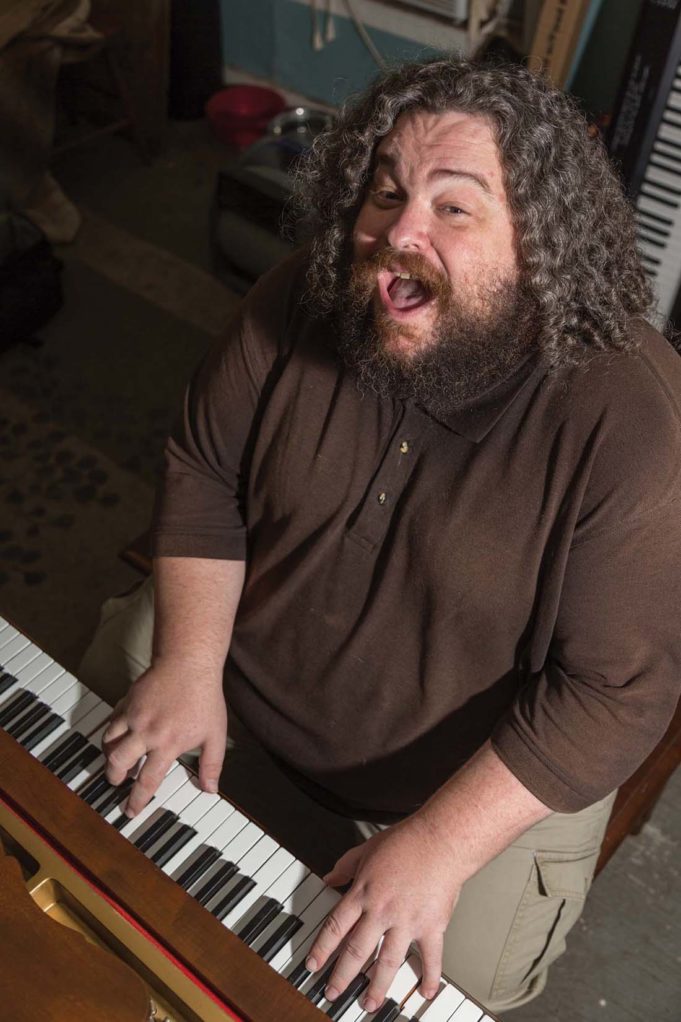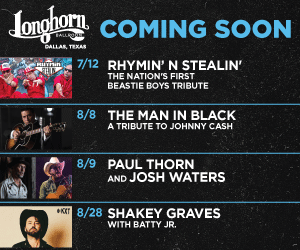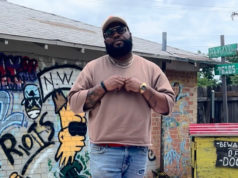I had this thought at MASS on Sunday night as psychedelic Austin-based prog-rock band White Denim ripped through 90 minutes of technically flashy, inventively melodic medleys of most of their catalog: Playing music is a lot of fucking work.
White Denim, of course, made it look easy, electrifying the crowd with a set of recent songs turbo-charged with bars grabbed from old songs, snuck into bridges and swapped into the turnarounds and vice-versa. It was a listening experience that was both amazing and disorienting, as the band whips around time changes like a quartet of Olympic slalom skiers. But still. I’ve seen that band pre- and post-show, and their internal machinery –– the routines and best practices and whatnot that keep them on the road and making a living as an enduringly popular live band –– all their organization is as tight as their arrangements, both in terms of functional operation and crew. Yet even with all of that professional alacrity, playing shows still seems a little bit like a capital-O Ordeal: negotiating with third parties, driving somewhere, setting up the gear and merch, and then sound-checking, second-guessing, shoulder-shrugging, and then throwing down heat lightning and hooks a few hours later.
My personal experience with the Ordeal is part of why I continue to play music. I love it the way spouses secretly love each other’s open-mouthed snoring and/or Crocs-and-cargo-shorts-based ideas about appearing in public, a love that’s tempered with hating those quirks on a practical level. But for some people, the Ordeal, in all or, in part, its manifestations, is too much to bear, to the point where they just say, “Fuck it. I’m not playing live.”
Andy Pickett is one of those people. He wasn’t always like that, but I thought back to the last couple of times I’d seen him play with a band, and it seemed like he wasn’t that comfortable or thrilled to be in a live-band situation. And recently I’d had a couple “You know what Andy’s been up to lately?”-type conversations with friends, so I texted him.
I’d heard a rumor that he’d landed a couple placements in some streaming shows, and that sounded like some positive news if it were true. Two tracks off his 2017 self-titled album were indeed pitched for placement on a couple streaming shows, Netflix’s Messiah and HBO’s High Maintenance. Pickett told me that “Alberta” made it on the former, but HBO decided not to use “Paid” in the latter. “I was pretty bummed,” he said. “Maybe next time.”
The emotional roller coaster that comes with waiting to hear if you got a song synched with a show – one of the few ways you can generate decent money from your music these days – is one of the more frustrating facets of the Ordeal. Pickett’s disillusionment with the Ordeal stems from losing that HBO synch, but it also springs from several other sources, including disagreements with unnamed entities in the local scene, plus the arbitrariness of paying dues, all multiplied by being conscripted into the service of what he describes as “drunk culture.” Since Pickett doesn’t drink, drinking is like “begging for a certain attention I don’t care about.” And anyway, he prefers recording to performing.
“I’d rather hit the studio and make something real,” he said. “Live music is fleeting.”
Andy Pickett has come to terms with his antipathy for live performances, and in doing so, he’s recharged his creative spirit.
“It’s freed up my brain,” he said, mentioning that he road-trips to Austin every so often to record with and/or bounce ideas off White Denim frontman James Petralli at that band’s Radio Milk studio. Pickett said the songs are coming naturally, but he’s also looking at music as a job, not just something you do because you like being drunk.
“I work at it,” he said. “I sit and make [the music] come out. There are times when I don’t do anything, but there’s always some idea churning around.”
So at least he’s facing the Ordeal on his own terms












